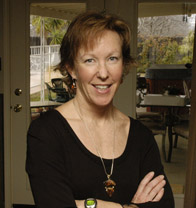UI College of Law professor Barbara Cosens receives spring research grant
University of Idaho College of Law professor Barbara Cosens will share her experiences as a scientist and legal professional outside of the Northwest as a visiting professor in Australia for the 2015 spring semester.
While she serves as a visiting professor, Cosens will conduct research on how to improve Australia’s current water laws.

Barbara Cosens
According to her co-workers, Cosens uses her knowledge of environmental science and legal systems to strengthen UI’s College of Law and enrich the lives of students.
“Barb has been a role model for women on the faculty,” said Angelique EagleWoman, UI College of Law professor. “And she has certainly been a guide and role model for me.”
EagleWoman, who has worked closely with Cosens on the college’s natural resources and environmental law emphasis, said the opportunity for Cosens to serve as a visiting professor in Australia is big news for all universities involved in the collaborative effort.
“Barb has distinguished herself as a scientist and an expert on water law,” EagleWoman said. “She’s one of the architects of the Waters of the West program at U of I, and for her to share her expertise with institutions in Australia is a huge contribution to their development of water law.”
The endeavor, Cosens said, began when she received a grant from the National Science Foundation (NSF), a fund that aims to bring interdisciplinary teams together to work on collaborative research projects.
Following the grant, Cosens said she submitted a research proposal and was selected to serve as a visiting professor for both the Australia and New Zealand School of Government and the Goyder Institute, both of which are associated with Flinders University in Adelaide, South Australia.
“I was co-leading a project for the NSF Synthesis Center when these institutions had a call for research proposals for people to visit for three months,” Cosens said. “The goal is to use that time to take what they’re doing with water policy and apply it to Australia.”
Cosens said the goal of her research is to understand how water management can be more resilient in the face of climate change.
“What climate change does is it imposes both change and surprise,” Cosens said. “We know there is greater variability, but it is hard to predict precisely what that variability will be … as a result, your water governance has to be more flexible and adaptable to change.”
Cosens said she has developed a framework for analyzing the laws governing water and plans to apply her framework to the Australian legal system in order to identify where flexibility exists within the laws and where barriers are found.
The most challenging part about working with water laws in Australia is less about the science and more about the legal system, Cosens said.
“Law is very specific to the area you’re in,” Cosens said. “Water law in the United States is a matter of individual states, and the same is true in Australia, so I find myself having to learn a whole new approach to water law.”
Trying to establish water laws to provide flexibility in the face of climate change and fit within the legal framework of individual states is a challenge, she said. Yet, she also said there are many benefits of conducting research under a foreign legal system.
“Australia has been experiencing extreme drought since 1995, so they’ve really scrambled to determine how to deal with that,” Cosens said. “And even though the United States hasn’t had a drought of that magnitude yet, water is becoming a matter of increasing concern, especially in states like California. By collaborating between legal systems to solve a similar problem we can identify areas of Australian water law that might aid the United States and vice versa … the benefits will flow both ways.”
Although she will be in Australia for most of the spring semester, Cosens said she intends to use the experience she gains from research abroad as a tool for teaching at UI.
“I will certainly use this experience in my courses,” Cosens said. “I hope to educate students on the differences between the United States and Australian legal systems, and I also hope to teach them some of the things we might learn from the Australian systems in terms of improving water laws in our own country.”
Corrin Bond can be reached at [email protected]